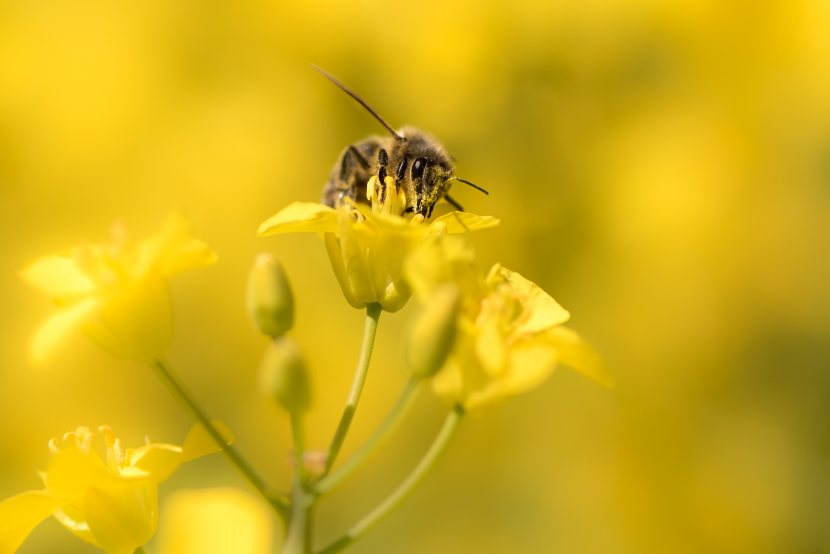
Farmers are laying a network of "bee roads" throughout the UK to support pollinators and promote bio-diversity.
Farmers who supply the Co-op have made over 1,000 miles (1633 km) of hedgerows, which help boost the environment and protect local habitats.
The data has been collected in the first year of implementing the retailer's new sustainability tool, Enviro-Map.
Results show farmers have also created 455 hectares of watercourses and wetlands that help provide habitats for species such as Kingfisher and Lapwing, and 116 hectares of wildflower meadows.
One-hundred devices have been planted on farms to encourage wildlife into their natural habitats, including the introduction of bird boxes, bee hives and beetle banks.
Caroline Morris of Manor Farm, which is part of the Co-op’s Beef Farming Group, has planted wildflower margins around the field boundaries on her Buckinghamshire farm.
She said: “The wildflowers look fantastic in the summer and they’ve certainly increased the number of butterflies on the farm.
“Our neighbour, who produces honey, has found an increase in production since our wildflowers have been in place so there has clearly been an increase in the number of bees in the area.”
Renewable energy
The Enviro-Map data also shows that renewable energy is a major focus for the 400 farmers who have taken part in the self-assessment programme.
It shows farmers produce 20 million kilowatt hours of energy being every year – enough to power 5,000 homes.
Nearly 80% of farms export the equivalent of the electricity they consume, with over two-thirds (65%) favouring solar panels and a further 16% opting for wind turbines.
The Enviro-Map is a three-year project has been created in association with Alltech E-CO2 to chart the environmental impact of its farming groups.
Using the world’s first Carbon Trust accredited self-entry carbon footprint assessment for farmers, it has an overall aim to improve on-farm efficiency and reduce carbon footprint.
